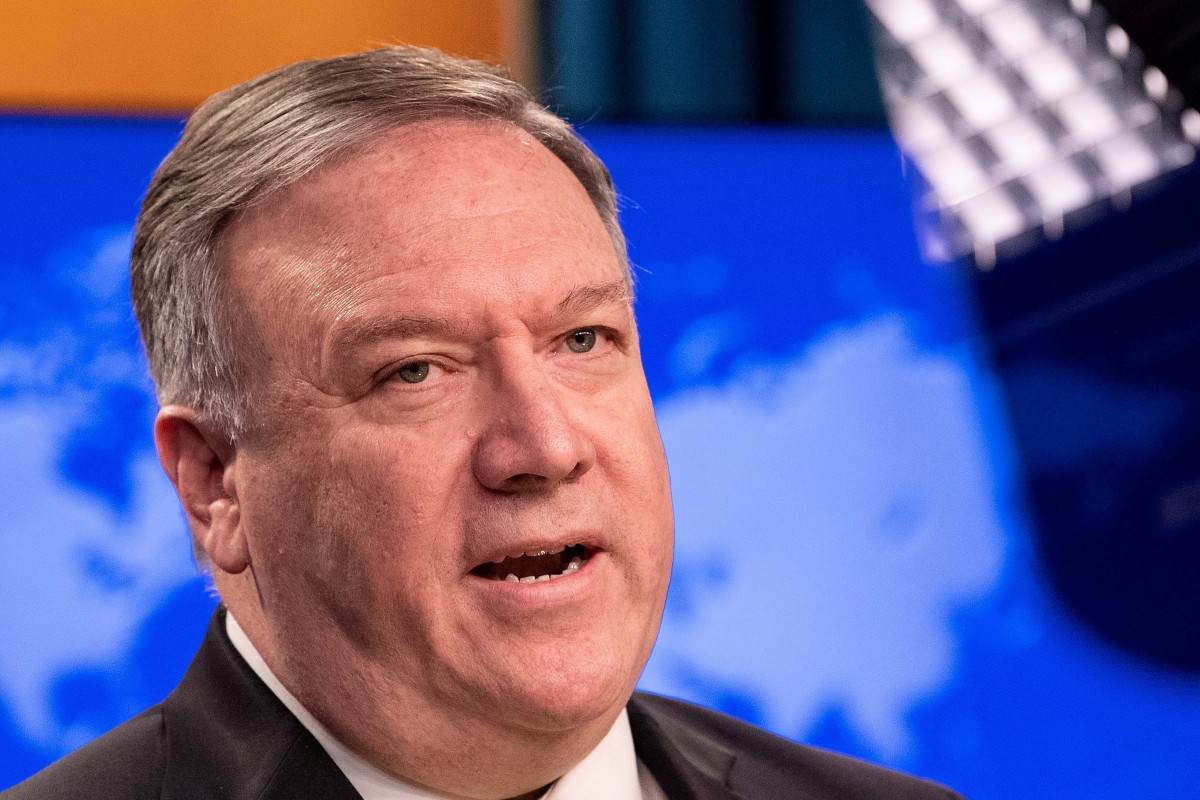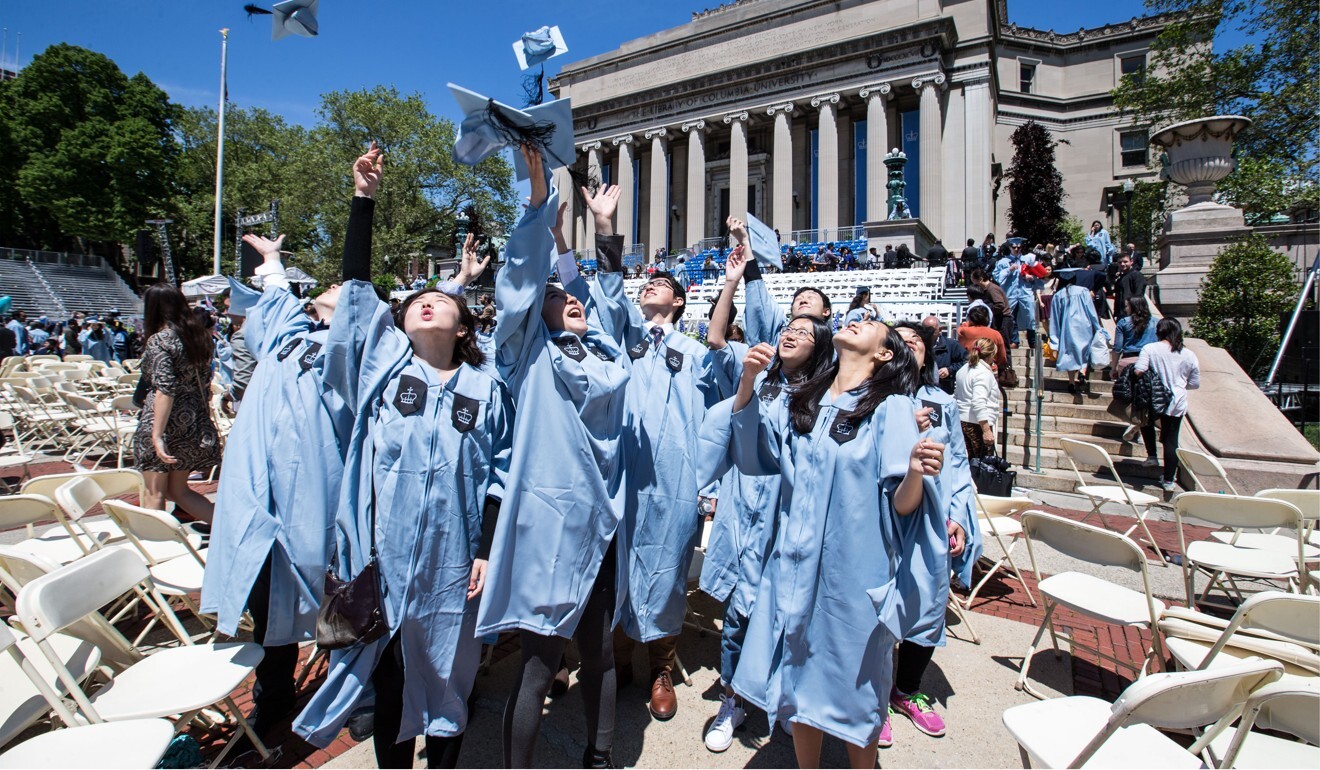Chinese students ‘shouldn’t be in our schools spying’, US Secretary of State Mike Pompeo says
‘We’re taking seriously the threat of students who come here who have connections deeply to the Chinese state,’ politician tells Fox News
US needs to act against the ‘tyrannical regime’ of the Chinese Communist Party, and President Trump is ready to take on that challenge, he says
Linda Lew Published: 29 May, 2020

US Secretary of State Mike Pompeo says the US is ready to respond to the problem of Chinese students engaging in espionage in America. Photo: Reuters
US President Donald Trump is preparing to “take on” the problem of Chinese students engaging in espionage in America, US Secretary of State Mike Pompeo said on Thursday.
“We’re taking seriously the threat of students who come here who have connections deeply to the Chinese state,” he said in an interview with Fox News.
“They shouldn’t be here in our schools spying.”
Pompeo was responding to questions about a report published by The New York Times on Thursday that the US was planning to revoke the visas of Chinese students and researchers who have direct links to Chinese universities affiliated to the country’s military.
While he declined to elaborate, Pompeo said Trump would hold a press conference on Friday at which it was likely he would make an announcement on the issue.
“We know we have this challenge,” he said. “President Trump, I am confident, is going to take that on.”
He dismissed suggestions that targeting Chinese students and academics might be seen as racist, but said the US needed to act against the “tyrannical regime” of the Chinese Communist Party, likening the situation to the tense relationship the US had with the former Soviet Union during the Cold War.
At a press conference on Friday, Chinese foreign ministry spokesman Zhao Lijian also referred to a Cold War mentality, accusing the Trump administration of racism and the “political repression” of Chinese students.

Pompeo dismissed suggestions that targeting Chinese students and academics might be seen as racist. Photo: Xinhua
Pompeo’s comments came after a group of three US lawmakers on Wednesday proposed a bill that would effectively bar students from the Chinese mainland from receiving visas to study STEM (science, technology, engineering and mathematics) subjects in America. The restriction would not apply to students from Taiwan and Hong Kong.
“The Chinese Communist Party has long used American universities to conduct espionage on the United States,” said Republican Senator Tom Cotton, one of the sponsors of the bill and a known critic of Beijing.
“What’s worse is that their efforts exploit gaps in current law. It’s time for that to end,” he said. “The Secure Campus Act will protect our national security and maintain the integrity of the American research enterprise.”
The proposed restrictions on Chinese students come amid a spiralling political spat between Washington and Beijing.
Earlier this month, the US imposed 90-day visa limits on mainland Chinese journalists working in America for non-US outlets, while in March, China revoked the press credentials for American journalists from three major US newspapers and declared five US media outlets to be foreign government functionaries.
Both sides’ moves have been criticised for threatening press freedom at a time when objective and independent coverage of the Covid-19 pandemic is critical.
“Beijing has barred Chinese citizens from working for foreign news outlets in China for decades,” Mia Li, a former reporter with the Beijing bureau of The New York Times, said in an article published by Chinese Storytellers, an online newsletter by non-fiction writers.
It was a “deliberate effort to keep the Western press from gaining meaningful access”, she said.
“Beijing has barred Chinese citizens from working for foreign news outlets in China for decades,” Mia Li, a former reporter with the Beijing bureau of The New York Times, said in an article published by Chinese Storytellers, an online newsletter by non-fiction writers.
It was a “deliberate effort to keep the Western press from gaining meaningful access”, she said.
It is astonishing to see the US helping Beijing achieve that very goal while undermining its own values and soft power,” said Li, who is now a research scholar at Yale Law School’s Paul Tsai China Centre.
Additional reporting by Catherine Wong
No comments:
Post a Comment